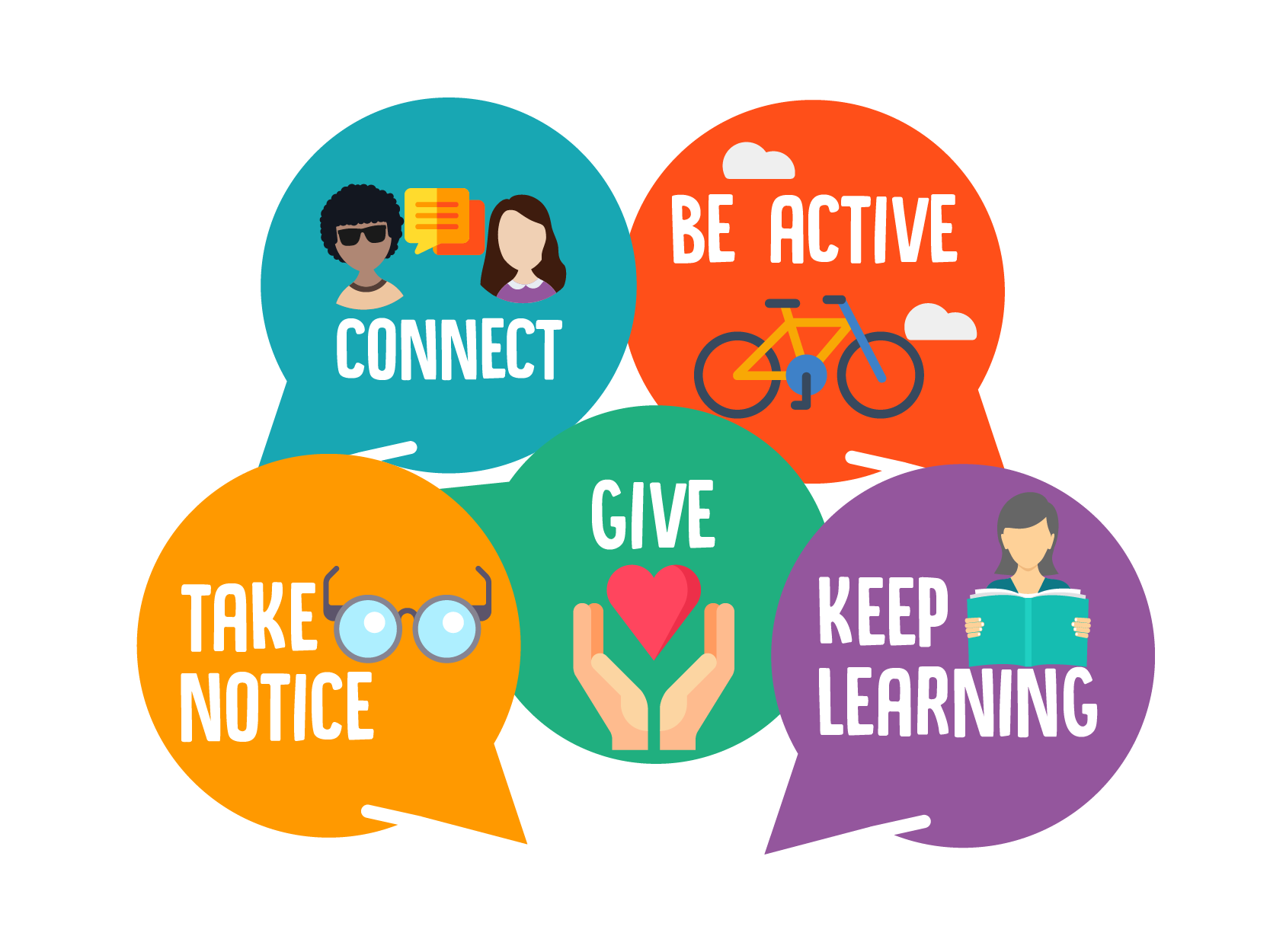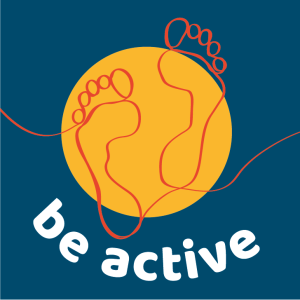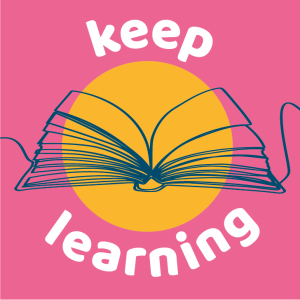At Parkside, we place a strong emphasis on the holistic development of our students. We are committed to fostering an environment that not only nurtures academic success but also the overall wellbeing of each young person. Through our personal development offerings, proactive intervention, pastoral support, and a caring community, we strive to promote physical, mental, and emotional wellness. Our goal is to empower young people to navigate challenges, build resilience and cultivate a positive and balanced approach to their educational journey, ensuring they thrive not just academically, but in all aspects of their lives.

The Five Ways to Wellbeing
According to research by the New Economics Foundation, there are five key ways to wellbeing: Connect, Be Active, Take Notice, Keep Learning and Give. At Parkside, these practices are woven throughout our personal development curriculum and culture. Having strong social relationships, being physically active and being involved in learning are all important influencers of both well-being and ill-being. By contrast, the processes of giving and becoming more aware have been shown to specifically influence well-being in a positive way. A combination of all these behaviours will help to enhance individual well-being and may have the potential to reduce the total number of people who develop mental health disorders in the longer term.
Evidence suggests there are 5 steps you can take to improve your mental health and wellbeing. Trying these things could help you feel more positive and able to get the most out of life.

Connecting with the people around us is a great way to remind ourselves that we are important and valued by others.
You could
- Talk to someone instead of sending a text
- If possible, take time each day to be with family e.g., try arranging a fixed time to eat dinner together
- Arrange a day out with friends you have not seen for a while
- Try switching off screens and talk, walk or play a game with your children, family, or friends
- Have lunch with a colleague
- Volunteer at a local school, hospital, or community group. Find out how to volunteer here
- Use technology to stay in touch with friends and family if you cannot meet in person. Use video calling technology such as Zoom and FaceTime but do not rely on technology or social media alone to build relationships. It is easy to get into the habit of only ever texting, messaging, or emailing people.

Being active is not only great for your physical health and fitness.
It can also improve your wellbeing by:
- Raising your self-esteem
- Helping you to set goals or challenges and achieve them
- Cause chemical changes in your brain which can help to positively change your mood
You do not have to go to the gym for hours. It is best to find activities you enjoy and make them part of your life.
You could:
- Go outside every day, even if it is just for a quick breath of fresh air
- Add stretches or gentle movements to your daily routine
- Go for a walk. You can find a range of local walks on Visit Bradford
- Set up a home workout routine using online videos. If you are a wheelchair user, read the NHS Getting Active Guide
- Going sledding or building a snowman if it snows
- Learn tai chi to stay flexible and relax

Taking notice of our thoughts, emotions and surroundings is a great way to stay present and pay attention to our needs. This is known as mindfulness,
You could
- Spend some time outside
- Try mindful colouring or drawing
- Keep a diary of your thoughts and feelings
- Start scrapbooking
- Watch the sunrise or sunset and reflect on your day
- Practice yoga

Learning new skills can also improve your mental wellbeing by
- Boosting confidence and raising self-esteem
- Helping you to build a sense of purpose
- Helping you to connect with others
Learning new skills does not have to be time consuming and they do not have to lead to a qualification if that does not interest you.
You could
- Learn to cook something new
- Try taking on a new responsibility at work such as mentoring a new member of staff
- Learn how to ‘DIY’ – there are lots of videos online to help you
- Sign up for a course at a local college. Shipley College offer a range of lifestyle and leisure courses alongside their adult education offer. So do Keighley College.
- Try new hobbies that challenge you, such as writing a blog, taking up a new sport or learning to paint

Research suggests acts of giving and kindness can improve your mental wellbeing by:
- Creating positive feelings and a sense of reward
- Giving you a feeling of purpose and self-worth
- Helping you connect with other people
You could:
- Say thank you to someone who has done something for you
- Ask friends, family, or colleagues how they are and really listen to their answer
- Spend time with friends or relatives who need support or company
- Offer to help someone you know with DIY project
- Volunteer in your community
